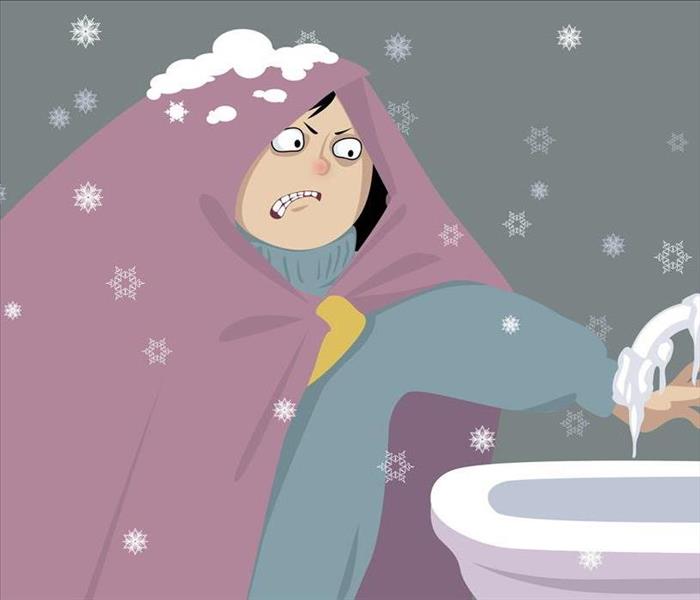Frozen Pipes: Insurance Coverage and Prevention
11/17/2021 (Permalink)
With the winter months ahead, many homeowners are checking to see what their insurance will and won’t cover in terms of winter damage, like frozen pipes. Most policies cover accidental or sudden damage to a home’s plumbing, meaning you can file an insurance claim for a bike break due to a pipe freeze. However, there is no guarantee that all costs will be covered by your policy.
While policies will vary, there are some everyday items covered. Most insurers will cover:
- Tearing out walls for burst pipe access
- Repairs to damaged property
- Repairs and restoration to walls
Most insurance companies will not cover the cost to repair the section of the broken pipe. Pipes that freeze are often the result of maintenance issues, meaning it is not covered by insurance. Therefore, it is vital to focus on prevention this winter. Contact a water remediation specialist in Colorado Springs, CO, for insight into more specifics.
Avoid an Insurance Claim By Following These 5 Protective Plumbing Practices
A burst pipe from freezing can result in significant property and water damage. Thankfully, preventing such issues is simple with some basic maintenance practices. If you plan on going on vacation this winter, make sure to adhere to the following five strategies.
1. Insulate
Do you have any exposed plumbing? Sometimes, a house will have pipes running through a garage or outdoors. You want to make sure that you insulate any exposed pipes with a foam roll or insulating tape.
It is also beneficial to insulate pipes under sinks or that are exposed in the basement. While these areas are often protected against lower temperatures, preparing for emergencies like outages is best.
2. Protect
Many houses have outdoor faucets or fixtures. You will want to disconnect any hoses from these fixtures to allow for proper drainage. Failing to remove hoses can result in frozen and broken faucets, resulting in property damage. If there is a separate shut-off valve, it is best to turn the water off and allow the fixture to drain.
3. Heat
One of the worst things you can do when leaving your house in the winter is turn off your heat. While you probably want to save money, your plumbing requires heat to function correctly. While you can turn down the thermostat, try to avoid going below 55° Fahrenheit.
4. Run
One of the best things you can do in the winter, especially in the coldest areas of your home, is run the water. You do not have to turn faucets on full force either. Essentially, you want to turn on your faucet so that it drips slowly. A slow drip will help keep water moving instead of freezing.
5. Drain
If you will be traveling this winter, it is likely best to shut off the main water supply to your home and drain the system. Draining the system is straightforward; you merely turn on the faucets in your home until no more water is coming out. Draining ensures there is nothing in the pipes to freeze.
While an insurance claim will typically cover the damage caused by a burst pipe, it will not cover the pipe repair. It is best to take preventative action to avoid a break, to begin with.



 24/7 Emergency Service
24/7 Emergency Service
